Dave Armstrong's Blog, page 35
October 1, 2012
A Biblical Critique of Calvinism (Dave Armstrong): Introduction
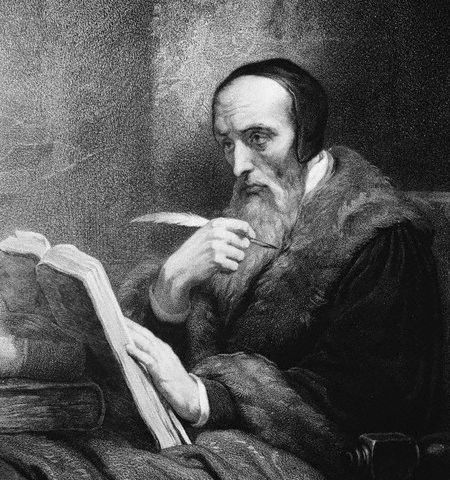 [see info-page for this book]
[see info-page for this book]The present volume is a follow-up or “Volume II” to my previous book, Biblical Catholic Answers for John Calvin (Lulu, 2010). That work, for the most part, was devoted to comprehensive (often literally line-by-line) replies to Book IV of Calvin’s magnum opus, Institutes of the Christian Religion : the portion devoted largely to ecclesiology, or the doctrine of the Church.
A little less ambitious and more specifically focused this time, I’ll be replying only to biblical arguments from Calvin in Books I-III, in all instances where he takes a position that is contrary to Catholic viewpoints (I need not quibble with him when we agree): and I’ll be answering primarily from Scripture alone.
The idea is to “fight fire with fire,” so to speak: to challenge Calvin on his own presumed ground and “home field” of alleged superiority of biblical argument, over against Catholicism, which is supposedly (so Calvin states innumerable times) unable to sustain an argument for itself based on the data of the revealed theology of Holy Scripture.
Every Protestant worth his salt feels that the Bible is the area where he excels and can overthrow the alleged “false doctrines” of the Catholic Church. Committed, educated Protestants, to their credit, are, on the whole, very familiar with the Bible, and often put Catholics to shame in this respect. But it’s high time that Catholics begin to vigorously contest these endlessly reiterated stereotypes about Catholicism having no biblical support.
Catholics tire of routinely being regarded as “unbiblical” or even “anti-biblical” Christians. I’ve always maintained (throughout my 32 books and nearly 2,500 Internet posts) the shocking notion that Catholicism is, in fact, far more thoroughly “biblical” than any particular brand of Protestantism.
I don’t expect anyone to simply accept my opinion when I assert this. I aim to demonstrate it in this book, by answering and “doing exegesis with” John Calvin. I am not expecting it to be easy (Calvin was a very clever debater and dazzling exegete, who failed – when he did -- mainly because of the multitude of false premises with which he began). It takes a huge amount of laborious effort to refute Calvin. He is more than equipped to keep any debater who differs with him well-challenged and “on their toes.”
On the other hand, I have no doubt that the Catholic arguments can and will easily prevail in the head-on confrontation with Calvin’s “Reformed” theology and the exegesis he utilizes in order to establish it. I know that because of my experience in writing the previous related book. Calvin’s exegesis is by no means irrefutable or unvanquishable.
His argumentation – brilliant though it often is – suffers from a systematic unwillingness to let the entirety of Scripture speak for itself. I know (from firsthand experience with Book IV) that he quite often picks and chooses what he wants from Scripture, for his polemical purposes, while ignoring other equally relevant portions.
Unfortunately, this has been a strong tendency in Protestant exegesis and systematic theology (and especially apologetics aimed to counter Catholicism) ever since -- though everyone, including Catholics, is prone to this sort of bias.
Taking on John Calvin’s exegetical arguments in this fashion will, it is hoped, demonstrate the persistent fallacies and falsehoods (from the Catholic perspective) that are frequently found in his writing, and illustrate at least some ways to refute and overcome them.
Catholics regard Calvinists and other Protestants as brethren in Christ, and rejoice over the many important beliefs that we hold in common. At the same time, the Catholic apologist’s task is to answer objections to Catholicism that arise in these quarters, and to present what we feel are superior alternative opinions.
Nowhere is this “battle” more lively and crucial than regarding Holy Scripture: God’s inspired, infallible revelation: held in the highest esteem by both parties. However much we disagree, we’ll always agree that theological positions must be in harmony with the Bible. If not, they must be rejected.
I'll be using, once again, the (public domain) translation of Institutes of the Christian Religion by Henry Beveridge, produced for the Calvin Translation Society in 1845, from the 1559 edition in Latin; reprinted by William B. Eerdmans Publishing Company (Grand Rapids, Michigan), 1995, and available online at the wonderful Christian Classics Ethereal Library site.
I will generally follow the structural format of the previous book on Calvin, including an Appendix of Areas of Calvinist-Catholic Agreement. When I am vigorously contesting another theological viewpoint, I nevertheless want to also maintain an ecumenical spirit and note significant areas where Calvinists and Catholics agree, or largely agree (as I did in Biblical Catholic Answers for John Calvin and my volume about Martin Luther, as well).
Oftentimes, these facts are poorly known or understood by many of those in both parties. With almost equal frequency, Calvinists mistakenly think that Catholics disagree with them on various points, when in fact, we agree. It works both ways: Catholics often inadvertently mischaracterize various Calvinist or other Protestant beliefs as contradictory to the Catholic faith, when they are not so. We have more in common than many (probably most) of those on either side realize.
Thus, it is necessary (for the sake of total honesty and factuality – not to mention charity) to make note of agreement, even in the midst of an effort mostly devoted to critiques of another viewpoint, and defense of our own.
*****
Published on October 01, 2012 08:49
September 29, 2012
Reflections on the Doctrine of Divine Simplicity and Church Authority to Determine the Parameters of Orthodoxy

--- from a Facebook thread ---
The Church has long since decreed divine simplicity to be a matter of faith (Denzinger 389, 428, 993, and 1782; cf. Ott, Fundamentals of Catholic Dogma, pp. 31-32: de fide dogma).
But William Lane Craig (prominent evangelical philosopher and apologist), not being bound by mere ecumenical and papal declarations, or the non-binding nuisance of purely optional sacred tradition, picks and chooses what he will believe and disbelieve, just as he did with monothelitism. The wisdom of Catholic authority is more manifest all the time.
It's fun and necessary to do the philosophy and defend rationally what we accept by faith, but the difference is that we have a framework in which philosophical speculations can be "checked" as heterodox and heretical (as our present pope and the previous one have often noted). Protestants have such a framework to some extent (creeds, confessions), but because of the ultimate nature of sola Scriptura, it carries a limited authority, quite insufficient to provide final "guidance" on difficult or complex questions such as this.
Hence we see folks like Craig deviating more and more from orthodoxy regarding theology proper. I was shocked to learn from a student there, that the faculty of Calvin College (Grand Rapids, Michigan) is stock-full of Open Theists. I hadn't realized that things had gotten that bad, but I shouldn't be shocked by it.
[I was asked by an Orthodox Christian if Catholic dogma on this was in line with St. Thomas Aquinas' position on the matter]
I don't know, myself. When Ott describes the doctrine that is de fide, he does mention Aquinas (Summa) twice, but that doesn't prove an absolute equation of his view with the dogmatic Catholic one. The 4th Lateran Council in 1215, however, gave one of the key statements, and that was ten years before St. Thomas was born. The Latin is substantia seu natura simplex omnino.
St. Augustine wrote in 391:
But the Catholic Church has taught me many other things also, . . . that God is not corporeal, that no part of Him can be perceived by corporeal eyes, that nothing of His Substance or Nature can any way suffer violence or change, or is compounded or formed . . .
(On the Usefulness of Believing [De utilitate credendi] , 36)
[it was claimed by a fellow Catholic that Aquinas taught that God's attributes were all "one and the same"]
Where does he say this? Perhaps the view logically reduces to that, but it seems to me to likely be trinitarian-like distinctions, on the order of: "God the Father is eternal; the Son is eternal; the Holy Spirit is eternal, yet the Father is not the Son; the Son is not the Spirit," etc. (orthodox trinitarianism being distinguishable from modal monarchianism, or Sabellianism). St. Augustine (I recently completed a book of his quotations) reiterates this sort of reasoning endlessly.
Could not one also say, by analogy: "God is good, God is wise; God is love, yet God's love can be logically distinguished from His wisdom, and both can be distinguished from His goodness"?
But St. Thomas Aquinas in Summa Theologica I.13.2 does leave a small (and fascinating) loophole:
Therefore we must hold a different doctrine--viz. that these names signify the divine substance, and are predicated substantially of God, although they fall short of a full representation of Him. [my italics]
I think that may be related to my point that to say God is x, y, z, does not necessarily mean that x=y=z, as some claim that Aquinas held.
Also, to say that "God is love" (as Scripture does), is not to say that love is all that God is. Ludwig Ott notes that:
Holy Writ indicates the absolute simplicity of God when it equates the Essence of God with His Attributes. Cf. 1 John 4,8: "God is charity." John 14,6: "I am the way, the truth and the life. (ibid., p. 32)
The Bible also says "God is true" (Jn 3:33), "God is spirit" (Jn 4:24), "God is faithful" (1 Cor 10:13; 2 Cor 1:18), "God is a consuming fire" (Heb 12:29), and "God is one" (several passages).
Ecumenical Council Lateran IV [1215] stated:
. . . unchangeable . . . Father and Son and Holy Spirit: indeed three persons but one essence, substance, or nature entirely simple. (Denzinger [D] 428)
Pope Paul IV denied the following teaching, on 7 August 1555:
. . . that Almighty God was not three in persons and of an entirely uncomposed and undivided unity of substance and one single simple essence of divinity . . . (D 993)
And the First Vatican Council in 1870:
. . . He is one, singular, altogether simple and unchangeable spiritual substance . . . (D 1782)
My thrust all along in this thread is that there is a point of theological orthodoxy, that goes beyond all the philosophical speculation. Catholics have that framework in place, Protestants ultimately do not. Orthodox do for the most part, but it breaks down at points, just as in Protestantism, from lack of dogmatic definition.
So, e.g., one classic instance of Orthodox theological / moral relativism is the relatively recent degeneration of the formerly solid position against contraception. And that is partly because they lack a solid, binding definition such as what we have from Humanae Vitae (1968), and even long before that.
Therefore, we alone maintain ancient and unbroken Christian moral tradition regarding procreation over against contraception; sadly, the Orthodox decided to cave in the face of modernity (and apparently, the sexual drive as well, since traditional Christianity requires a considerable degree of discipline and control in such matters).
This is a big Catholic-Orthodox difference. When we are asked about some dogma, we can say exactly what we believe, and cite the authoritative magisterium to demonstrate what Catholics believe on thus-and-so, and trace it back historically (precisely the patristic methodology in dealing with heretics or non-Catholic inquirers).
Orthodox either differ amongst themselves, or if they say, "I believe x [on vexed issue y]," then oftentimes they can't produce a "magisterial" Orthodox formulation to back themselves up, because there either is none, or there are several concerning which Orthodox disagree (about interpretation and/or degree of authority).
Therefore, we often have a scenario of pure private judgment which is, too often, scarcely distinguishable from Protestant Luther-like private judgment (i.e., arbitrary, and endlessly contradicted by others in the same camp, following the same flawed rule of faith and principle of authority). Since Orthodox polemicists so often try to place us with Protestants on the continuum, like we're two peas in a pod, I thought I'd return the favor. :-)
It appears to me that Lateran IV and the other dogmatic statements are saying that God has no composition. If that is the case, this other stuff [great philosophical and/or theological speculation on the dogma of simplicity] is a non sequitur in terms of what a Catholic must believe, on the basis of dogma requiring it.
With all the other fine-tuned philosophy it would then be a matter where differences are allowed to exist, such as with the predestination question (I am a Molinist, whereas the Thomists seem to have the greater numbers within Catholicism).
If this is so, then the Scotists and Eastern Fathers are free to have their formulations that might differ from Augustine and Aquinas, since it is not anti-dogmatic (in a Catholic sense) to do so.
It's outrages like Open Theism and saying that God is in time or can change His mind, where we enter serious heterodox territory. Even Dr. Craig asserting or not denying monothelitism is strictly heretical and not to be countenanced for a second.
1. You [an Orthodox participant] say you are a Palamite.
2. You say that Palamites don't disagree with no composition or parts in God.
3. I have stated that the essence of the dogmatic definitions on simplicity is no composition or parts in God.
4. Ergo, you agree with the essence of my Catholic dogmatic statements on simplicity.
5. What, then, are we arguing about?
If you're determined to find a difference where there is none, then I suppose there is nothing we can do about that. We have enough real differences. Why create an imaginary one?
I understand that Denzinger never mentions "energies" or "hesychasm" or "Palamas." This would imply that it is not a matter that comes under the radar of "dogma", and that those discussions are permissible within a Catholic framework.
I think there is an ecumenical way forward [with Orthodox] on these issues, and agreement and broad consensus to be found, just as I have always thought was possible regarding the filioque issue as well. As far as I know, the stated Catholic dogmas on simplicity allow for different philosophical frameworks, without espousing just one of them. I've yet to see anything that would suggest otherwise.
* * *
Published on September 29, 2012 09:45
Reply to an Academic's Insults to My Work and Supposed Profound Intellectual Shortcomings / History of Non-Academic Lay Apologetics
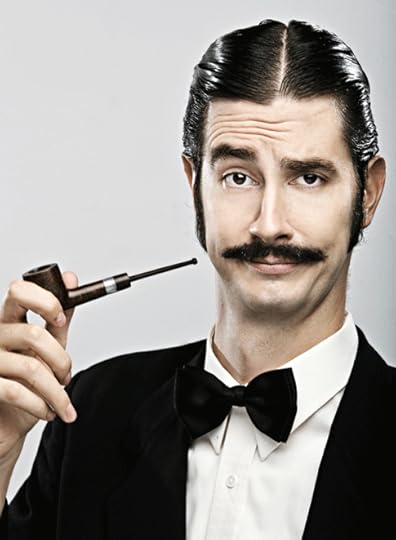
This occurred on a non-public Facebook thread in September 2012. It was originally a dispute with an Orthodox gentleman (who shall remain anonymous) about divine simplicity and the somewhat related issue of "Divine Energies" (a mostly Orthodox interpretation having to do with God's Nature). His words are in blue.
* * *
. . . you are an untrained popular Catholic apologist. . . . As far as I know you hold no graduate degrees in philosophy, theology, history or any other relevant field. Noting a fact is not an expression of personal animus. At most it is an expression of indifference.
. . . people wishing a quality dialog go to Michael L[iccione] or Bryan Cross rather than your blog.
[Etc., etc. (he threw out numerous additional insults along these lines]
***
By all means, [Name], go dialogue with fellow academics like Michael or Bryan. That's the world you are in. No one would expect any differently. It's part and parcel of the academic enterprise. Some academics (like Michael, and also Bryan and many other Catholics online) also care about talking to (and educating) non-academics, too, and I've always appreciated that more democratic and egalitarian attitude (over against the ivory tower mentality). That is the essence of a teacher: educating those who know less. I thank God for those people. I immensely admire their efforts outside of the colleges and universities and seminaries.
I must say I was surprised to hear that educated people supposedly avoid my site, since I have more than 650 dialogues posted on it, including many dozens with professors (in addition to lots of pastors, and those with graduate degrees, too): Dr. Edwin Tait [Anglican Church historian]: 17 dialogues, Dr. E. L. Hamilton [evangelical]: 5, Dr. Eric Svendsen [evangelical]: 4, "CPA" [Lutheran professor of history]: 17, Dr. Alexander Pruss [Catholic philosopher], Dr. Robert Sungenis [Catholic "trad"]: 3, Dr. Barry Bickmore [Mormon]: 2, Dr. Jim Arvo [atheist], "DaGoods" [atheist lawyer]: 19, Dr. Ted Drange [atheist philosopher]: 5, "ProfMTH / Mitch" [atheist professor]: 5, Dr. Jan Schreurs [agnostic scientist]: 3. That's at least 82 with folks who have a doctorate degree. But in a dream world these edu'm'cated folks supposedly never engage me in dialogue. If we count "Dr." James White (I dispute his degree because it was from an unaccredited diploma mill, and he did a very plain, utterly non-unique "dissertation" about the Trinity), that is about 25 more, for over 100, or about one-sixth of my total dialogues.
I've noted many times, and it is appropriate and necessary to do so again, after an avalanche of posts critical towards me (surely I am entitled to have my "say" too): the most successful Catholic apologists have been those who did not have a theological degree (not even an undergraduate one). My own category of "popular lay apologist" is of this nature.
G. K. Chesterton: the most successful and influential "popular apologist" of the first third of the 20th century, not only had no theological degree; he had no degree whatever, in anything. He took a few art classes at a college. That's it. Yet a noted Thomist like Gilson said that his book on Aquinas was better than any that he had written himself, and had more insight into the topic, and very profound wisdom.
C. S. Lewis was the most influential Christian apologist of the next 30-year period. He was (as most know) a Professor of English Literature: not theologically trained, that I know of. He had some training in philosophy.
Frank Sheed: a lay apologist of great influence, was a lawyer. Thomas Howard is another English professor. Malcolm Muggeridge was a journalist (like Chesterton). Peter Kreeft is a philosophy professor. Mark Shea was an English major (BA, I think). Karl Keating is a lawyer (though I believe he has taken some theology courses). There are some exceptions: Scott Hahn: a theology professor who also does popular-level stuff and has had tremendous influence. But by and large, it is as I have said.
Thus, we see that there is nothing unusual whatever in this; nor is it somehow frowned upon by the Church. Chesterton (high school education and no theological training) was greatly honored in the Church, and that was 100 years ago. So was Sheed.
I don't claim to be anything I am not. There is no pretense here. I'm in this proud tradition of lay apologetics, that doesn't necessarily require advanced degrees in theology (though the more education the better). There is nothing whatever to be ashamed of in that. If someone thinks I am deficient in technical areas of theology because I haven't read 35 books on one narrow topic (as academics do) -- in the original languages -- , no skin off my back. I never said that I did read that much on some fine point; nor do I wish to. More power to those who do!
But I've read virtually all of, e.g., Cardinal Newman and Chesterton (that's no small number of books!), in order to produce ("officially") published quotations books devoted to them. I've even done the same this year with John Wesley, and now St. Augustine. I learn and read what is helpful to my particular task: lay apologetics, and explaining and teaching how to defend the Catholic faith to the masses. I'm a successful author, with eight books put out by mainstream Catholic publishers, and lots more to come before I depart this earth. That is not insignificant, nor is it at all easy to do.
I'm happy to occasionally take some arrows and insults. Let 'em fly. That is nothing compared to the multiple hundreds of letters received, of folks saying they are coming into the Church or returning to it, due in part or primarily (on a theological, intellectual, human level) to my writings. The Holy Spirit ultimately draws men in, by His grace, of course. It's all due to Him; all glory to God.
We apologists mostly just remove roadblocks. That's what I am here for; what God has called me to do in my life, so let the insults fly if you (or anyone else of like mind) must, about my education and credentials (and far worse). They're wrongheaded and miss the mark entirely.
And any fair-minded person reading this can surely see that.
***
Right after this was posted, a person wrote on the same thread:
By the way, I've never contacted you, but when I converted to the Catholic Church some twelve years ago your writings online were an enormous help to me in a number of areas. Thank you for what you've done in service to the faith.
*****
Published on September 29, 2012 09:40
September 24, 2012
John Calvin Assumes a Non-Spherical Earth and Severely Mocks Plato for Believing that the Earth is a Globe

This comes from Calvin's Institutes of the Christian Religion (Book I, 5:11):
. . . every one appropriates to himself some peculiar error; but we are all alike in this, that we substitute monstrous fictions for the one living and true God—a disease not confined to obtuse and vulgar minds, but affecting the noblest, and those who, in other respects, are singularly acute. How lavishly in this respect have the whole body of philosophers betrayed their stupidity and want of sense? To say nothing of the others whose absurdities are of a still grosser description, how completely does Plato, the soberest and most religious of them all, lose himself in his round globe? [editor's footnote: Plato in Timaeos. See also Cic{ero} De Nat. Deorum, lib. 1; Plut{arch} De Philos Placitis, lib. i.] What must be the case with the rest, when the leaders, who ought to have set them an example, commit such blunders, and labour under such hallucinations?
(translation by Henry Beveridge, produced for the Calvin Translation Society in 1845, from the 1559 edition in Latin [16 years after Copernicus' death]; reprinted by William B. Eerdmans Publishing Company [Grand Rapids, Michigan], 1995, and available online at the wonderful Christian Classics Ethereal Library site)
Now, lest we doubt what Calvin was referring to by "round globe" (i.e., question whether he had in mind the spherical earth, that he rejected), this edition references Plato's Timaeus; as does the more recent translation by Ford Lewis Battles (Philadelphia: Westminster Press, 1960). The latter also provides a more specific portion of the classic work (footnote 35 on p. 64 of Vol. I): "Timaeus 33B".
Let's see, then, what this section states. The following is from the famous 1871 Benjamin Jowett translation (that I also had in my own library and consulted):
And he gave to the world the figure which was suitable and also natural. Now to the animal which was to comprehend all animals, that figure was suitable which comprehends within itself all other figures. Wherefore he made the world in the form of a globe, round as from a lathe, having its extremes in every direction equidistant from the centre, the most perfect and the most like itself of all figures; for he considered that the like is infinitely fairer than the unlike.
(from the html version available online at Project Gutenberg)
In my paper, Early Protestant Hostility Towards Science, I documented at length how John Calvin (who outlived Copernicus by 20 years) believed in geocentrism and an earth that didn't rotate, in the center of the universe, with everything else in the universe rotating around it (see also a second related paper). I noted that Calvin and Luther were said to have denied the sphericity of the earth, but had no hard evidence at that time (only a second hand report from a rather hostile witness). This present information appears to provide it (with regard to Calvin, at any rate).
Moreover, Calvin believed in a literal six-day creation:
For it is too violent a cavil to contend that Moses distributes the work which God perfected at once into six days, for the mere purpose of conveying instruction. Let us rather conclude that God himself took the space of six days, for the purpose of accommodating his works to the capacity of men.
(Commentary on Genesis, translated by John King [1948], p. 19; from the Crossways Classic Commentaries series, edited by Alister McGrath and J. I Packer [Wheaton, Illinois: Crossway books, 2001])
He also believed a 6,000-year-old earth:
We must not be moved by the profane jeer, that it is strange how it did not sooner occur to the Deity to create the heavens and the Earth, instead of idly allowing an infinite period to pass away, during which thousands of generations might have existed, while the present world is drawing to a close before it has completed its six thousandth year.
(Institutes, I, 14:1)
To be fair to Calvin and his historical context, he is not hostile to science per se, nor to the scientific method (generally speaking). He makes reference, for example, to "astonishing discoveries, and inventing so many wonderful arts" as "sure indications of the agency of God in man." (Institutes, I, 5:5), and states: "I deny not that Astronomy has its use" (ibid.). He refers positively to "astronomy, medicine, and all the natural sciences" and writes:
To determine the connection of its parts, its symmetry and beauty, with the skill of a Galen (Lib. De Usu Partium), requires singular acuteness. (Institutes, I, 5:1-2).
Nor were great scientists even long after his time immune to quite mistaken and even silly beliefs, as I documented in my papers:
"No One's Perfect": Scientific Errors of Galileo and 16th-17th Century Cosmologies Rescued From Inexplicable Obscurity
"Science vs. Religion" Chronicles: 16th-17th Century Astronomers' Simultaneous Acceptance of Astrology (+ Part Two)
Even as late as the 1840s (with a revival in the early 20th century), scientists were defending blatant racism with the ridiculous theory of phrenology. In Calvin's time, modern science was relatively young, so we would expect errors not only from non-scientists like himself, but also scientists. Tycho Brahe (1546-1601), for example, continued to be a geocentrist and respectable scientist (with many notable and important discoveries) 37 years after Calvin's death, and 58 after Copernicus' death.
*****
Published on September 24, 2012 15:00
September 17, 2012
Fundraising Drive Continues (Goal: $5,000): Week Two / Matching Funds Offer: $500
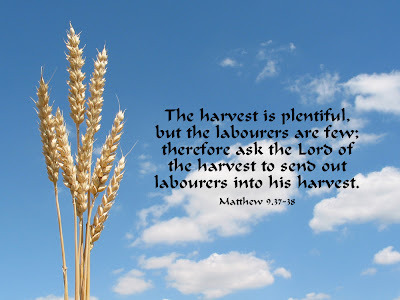
See the original post. Link to the Facebook thread.
A generous couple from the great state of Arizona has offered to match up to $500 that is raised in the next 72 hours (Thursday at 11 AM ET). That shouldn't be difficult to do. C'mon, folks! If you believe in this work, please prayerfully consider a donation large or small.
The first week brought in a total of $2110, or 42% of the total. THANK YOU so much to those who have contributed. I'm sure God will bless you for your willingness to contribute to the New Evangelization.
The next $500 of contributions will be matched, meaning that it'll be doubled to $1,000. That would bring us to $3110, or 62% of the goal, leaving just $1890 left to raise. I know it can be done, if we all chip in and make it a group effort. Those of you who have used my work for years know who you are. :-) Here's your chance to help my apostolate in a concrete way.
I explain at length in the linked paper why I need to solicit and raise money in this particular and temporary circumstance (only the second time I've ever done so: the last being in Dec. 2001), but also why the future looks bright. It all has to do with book contracts.
* * * * *
Published on September 17, 2012 13:51
September 10, 2012
"Dollar-a-Day" / "Donut-a-Day" (Etc.) Fundraiser for My Apologetics and Evangelization Apostolate; Goal: $5,000
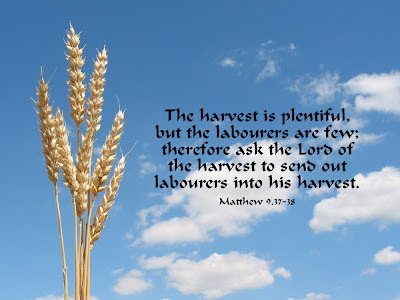
The time has come to raise funds for my apostolate of evangelism and apologetics. If you could kindly allow me about 10 minutes of your time, I will fully explain why. No guessing games or mysteries here!
A Very Rare Case of Overt Fundraising and Solicitation from Yours Truly
I've only engaged in a serious and ongoing fundraising effort (beyond mere brief mention of needs) one time before. It was in December 2001, when I had just lost my delivery job of the previous ten years, due to the company going out of business: exactly two weeks after my daughter Angelina (my fourth and youngest child) was born.
I announced my situation on my website, and asked whether folks agreed that I should try to do apologetics full-time. They did, in no uncertain terms, and responded generously, and I have engaged in this work full-time ever since, by God's grace and His provision: by means of book royalties and the financial support of those who thought that my apologetic / evangelistic was of some usefulness.
Nipping Anticipated Possible Objections in the Bud
It needs to be made very clear at the outset, that I've fully supported my family of six all these years (my wife has home schooled our four children, so I'm the sole "breadwinner"). We pay all our bills, including a mortgage for our bungalow (no late bills or credit problems); we rarely even use credit cards, we live simply (lots of used stuff and cost-saving techniques), and take a nice vacation every year (camping and a lot of our own food, to save money). Even my ten-year-old Angelina has already been to 46 states, and eastern and western Canada as well: all on driving / camping trips.
No one here is "unprovided" for. Some folks -- mostly anti-Catholics or nominal Catholics -- have publicly blasted me in the past for supposed reckless irresponsibility and "forcing" my family to "suffer" -- not knowing the slightest thing about the actual facts. We live a quite normal, lower middle class life. Our four children have bicycles, basketball net and backboard, a pool in the backyard, lots of games, a computer for each son, and video games: everything they need. We find ways to get them inexpensively. By the standards of the entire world and history of the world, we're very rich. By current American standards, not at all so. But we (I) pay our bills. That's what I want to get across in this section.
The Sources and Frequency of My Income / Tentmaking
As I have often explained: my income is primarily based on book royalties that mostly arrive only twice a year (and in real terms the author usually receives only around 7% of the list price per book sale), donations from contributors like you, and (like St. Paul and his tentmaking on the side) part-time work taken on as necessary: in addition to ongoing full-time hours for my apologetics.
I never stop doing apologetics, no matter what happens. It's my calling and vocation (and I've known that since my evangelical Protestant days in 1981). As St. Paul said, "For necessity is laid upon me. Woe to me if I do not preach the gospel!" (1 Corinthians 9:16: RSV). When one is called by God to do some thing, one must be obedient and do it.We all have some sort of calling (1 Corinthians 12:7-11). This is mine.
Since 2001 and full-time apologetics work, I have also (here's the "tentmaking") sold used books, run a large suburban paper route seven days a week for a year-and-a-half, and worked as a transporter delivering cars from one place to another. Furthermore, for twenty years before that I did a great deal of apologetics while working in unrelated full-time jobs.
My first book was completed in May 1996 while I was employed full-time in the delivery business (it took seven years for it to be "officially" published). I had articles published from 1993 on; my conversion story was included in the bestseller Surprised by Truth (1994), and I was on Catholic radio as early as 1997. My website began in the same year (it won an award as Best Catholic Website from Pat Madrid's Envoy the next year) and by 2001 over 600 posts or web pages were made available for free. I also answered multiple hundreds of letters: all gratis.
This all occurred while I was working full-time in completely unrelated work. In other words, any notion that I am allegedly "unwilling to do 'real' work" (other than apologetics work) is completely imaginary and ludicrous.
Most notably, I was affiliated with Marcus Grodi's Coming Home Network International (CHNI) for three years (2007-2010), as a staff moderator on its Internet discussion board.
Why I am Presently Experiencing Great Financial Difficulties
The last item brings us to the question of why I am in a serious financial crisis at this time. Many people automatically assume that it is the person's fault who is struggling: that it is some kind of irresponsibility. Sometimes that may be true, of course, but it is not in my case. Please let me explain, if I may. The job at CHNI ended in December 2010 as a direct result of the bad economy.
It's not complicated to understand. When economies are bad, people (as most of you reading this know from your own finances) have far less disposable income; therefore less for donations of the sort that a non-profit organization like CHNI depends on, and less for buying books (what authors depend on). They have to pay their bills, and are blessed if they can even do that. Thus, CHNI lost a great deal of support from its contributors, and had to make cuts (my job being one). Anyone who depends on sales or donations or (like me) both, will suffer disproportionately in a bad economy. We may keep our jobs, but our incomes are greatly lessened.
I've Done About as Good as Anyone Could Do as an Author in My Field
The financial crisis isn't due to any loss of quality in my work, far as I can tell; by any objective indication. I have several bestsellers in the relatively small Catholic apologetics field / market. Catholic apologist Karl Keating noted in his e-letter of 21 November 2006:
. . . very few Catholic books sell into six figures. For that matter, few sell into five figures. In orthodox Catholic publishing, you have a hit if you sell 10,000 copies of a title. It certainly is a niche market. . . .
I've achieved that several times. A Biblical Defense of Catholicism (2001) has sold 20,675 copies, as of 2-3-12. The Catholic Verses (2004) has 17,641 sales, and The One-Minute Apologist (2007), 10,569, as of the same date. The New Catholic Answer Bible appears to be my biggest seller of all, judging by Amazon sales ranks, but I don't have sales figures, and (most unfortunately) I receive no ongoing royalties for that. I was paid a one-time fee.
The problem at the moment is not my work; it's clearly the economy. People aren't purchasing as much; period. I've heard that the median income for the middle class has decreased by $4,000 a year.
Exact Figures of My Income Loss, Largely and Directly Attributable to the Bad Economy
Now I'll explain the kind of hits I've taken as a result of the recession and stagnant economy. Comparing (directly from my royalty reports) the numbers of sales from the first half of 2008 (right before the recession) with sales in the same period in 2012, the first three titles above decreased by 73%, 75%, and 76%, with actual royalties decreasing by 70%, 76%, and 74%.
Those are the actual figures (not a rough estimate). Imagine taking a pay cut like that in a "regular" job with weekly pay or a salary. We're talking about royalties that come twice a year being 25% of what they were just four years ago (!!!).
My Successful Strategy to Rebuild My Income as a Sole Proprietor Author / Apologist
Yet I have (almost incredibly) still survived until now: coming up to eleven years of full-time apologetics. I've done it by putting out more and more books (the number is now 32), and selling e-book package deals. But sales for the latter are way down, too, from what they used to be (about $300-400 a month less, on average).
When I lost the job at CHNI in December 2010, I had a difficult choice to make. Many small business owners or self-employed sole proprietors are in the same boat. I could go out at age 52 and look for (with 11% real unemployment nationwide) some kind of part-time job (and I've always been willing to do that: all honest work is honorable).
Or I could devote even more time and energy to the capital I have built up: my books and my website(s). I decided to take the latter course, and (praise be to God) it has demonstrably worked. I started my Facebook and Twitter pages in January 2011, and they have brought multiple thousands more people in contact with my work. A generous friend is also currently working on a new bookselling site for my books, that will bring about greater sales, by means of search engine maximization.
I decided in January 2011 to spend much more time writing books, to hopefully create more income (since books sell, as opposed to website posts and lengthy dialogues). As in all business ventures, it was a risk and not a given. I've produced ten new books in 2011 and 2012, including two recent "officially published" ones: The Quotable Newman (Sophia Institute Press, scheduled for 5 October 2012), and 100 Biblical Arguments Against Sola Scriptura (Catholic Answers, May 2012).
Moreover, I've established an ongoing working (and contractual) relationship with Catholic Answers (unquestionably the preeminent Catholic apologetics organization), after meeting with the staff at their headquarters in May 2011. I work directly with Todd Aglialoro, the acquisitions editor there, who has now edited five of my "officially published" books. He does a marvelous job.
More books with "CA" will be in the offing, and this is hugely important in my career as an apologist. Catholic Answers reaches directly to my target audience, and has the resources for serious, widespread advertising (that I desperately need in order to sell many more books). And, of course, CA has to regularly raise funds, too, like all such organizations (I'm one of very few full-time Catholic apologists who doesn't regularly solicit funds).
Todd and I are already seriously discussing new books written for CA in the future. There will also assuredly be more books for Sophia (I've already done five with them), including, quite possibly, a Volume II of The Quotable Newman (since I have an additional 243 pages of quotes that had to be edited out for size purposes).
The Future Looks Bright (But I Have to Survive Until I Get There)
The Quotable Newman and 100 Biblical Arguments Against Sola Scriptura represent major new contracts: my fifth book with Sophia and first of (most likely) several with CA. I also signed a contract in March 2012 with Logos Bible Software: the leading "Christian / Bible electronic resources" company, for ten of my books published on my own at Lulu.
An author can do no better than that: three major new book contracts with three important publishers in eight months' time, with real, likely potential for more to come in the future. Furthermore, my book, The Quotable Wesley , is under serious consideration with a large Protestant (Wesleyan) publisher. I've gotten by, then, with new books and contracts. But the economy is so bad that all these gains have been wiped out, and my income is disconcertingly less than it was 6-7 years ago.
The problem at this particular time with the new contracts is that none of them has "kicked in" yet (except for two fairly small advances received). The "new money" (an author's "raise," in effect) is not yet "here." The Quotable Newman isn't even published yet. When it is, there will only be two months left in the year, and that may not even be time enough for royalties to surpass the modest advance I already received. That means I probably won't see more money from that book till next August.
I Need Your Help to Get to the New Place I'll Be in February
Therefore, my income will dry up completely (without unforeseen sources or money as a result of this effort) in early October, after I pay my mortgage and gas / electric bill for September. This is my "situation" in the near future. I'm betwixt and between: waiting for three new book contracts to start providing more desperately needed income (as a result of 75% less royalties).
I believe (or sure hope that) it is a one-time situation: a temporary "glitch." If I can make it to February and those twice-a-year royalties, including two or three new ones, then it looks like I'll be back to where I was four years ago, or at least somewhere near that. I believe my finances will again be solvent by that time.
Therefore, I am asking for your help. As always, when I solicit funds in any way at all (and I do very little of it, because I personally intensely dislike it, and I haven't had to), it is always based on an approach of "if you have personally been helped by my work, please prayerfully consider supporting it financially, or through prayer, if not financially."
Credentials and Accomplishments: Why to Support This Work
By the grace of God, I've produced 32 books (plus portions of four more), almost 2,500 papers posted on my blog, which has been online in some form since February 1997; lots of published articles and radio appearances, and have received many personal recommendations from well-known Catholic figures, including Servant of God, Fr. John A. Hardon, S. J., who wrote the Foreword of my first book, "highly" recommended it, and described it as:
. . . thoroughly orthodox, well-written, and effective for the purpose of making Catholic truth more understandable and accessible to the public at large. . . . a fine book of popular Catholic apologetics.
Scott Hahn wrote a Foreword to my book, More Biblical Evidence for Catholicism , and Joseph Pearce did a Preface for The Quotable Newman. I've worked with many prominent organizations and publishers, including the very best ones in my field. I've received Imprimaturs (one from my own bishop in Detroit). I'm a "known quantity." You can trust me. Anyone can see documentation of what I mentioned above on my Literary Resume page, if they so desire.
When you support my work you are directly part of that: you literally make it possible. It takes a lot of time. I can do it because I have a very high motivation, a passionate love for my work, and for the people I am doing the work for. I have the ability (from God and His calling) and the zeal (from Him as well), and the time to create the work. I'm privileged to participate in the "harvest."
Bottom Line: I Need to Raise $5,000 in This One-Time Solicitation
I don't have other employees to pay, or magazine or radio or building rental costs. Those things cost hundreds of thousands of dollars. I'm merely asking for (from many people) $5,000 to get me through a temporary rough spot (as explained above).
Is it really a difficult thing to raise a one-time amount of $5,000, given the "numbers" of those who follow my work (judging by hits, Facebook followers, etc.)? It may be, but I don't think it should be. It's a pretty small amount to even ask for. All I need is for a good proportion of folks who report (or even those who don't report) that my work has helped move them along the "spiritual / theological spectrum" a bit, to chip in: a group effort.
Laborers for the Harvest. I'm Tryin' My Best to be One of 'Em!
I find it interesting that one of the Holy Father's intentions for the month of October, is "for a renewed commitment to evangelization." I'm an evangelist, a missionary, an apologist; a teacher of sorts. My work is used for all sorts of research projects and outreaches, and/or personal education. I know, because I receive the letters.
Perhaps people don't know much about how meager my income is, because I mention it so rarely. I just keep doing my work, thinking it will speak for itself, trusting in the Lord to provide. He always has: I can joyfully testify. But I need your help to do my work: especially in the next few months.
Jesus said, "the laborer deserves his wages" (Luke 10:7) and "the tree is known by its fruit" (Matthew 12:33). The evangelist or apologist's "fruit" (made possible entirely by the grace of God, and all glory to Him), is demonstrated outwardly in how it aids people in their lives and life choices, with regard to Christianity: following God more faithfully, or choosing to become a Catholic or to return to the Church if they were once actively in it. These momentous life events are shared through letters or on web pages.
The Fruit: 18 Examples from Many Hundreds of Reports Received by Mail
Here is a sampling (nine from 2006 and nine from recently) of hundreds of unsolicited "thank you's" and testimonies of conversion or reversion that I have received (all from e-mail, except for "FB": on my Facebook Page / "PM": Facebook private message):
I don't think it is an exaggeration to say that Biblical Evidence for Catholicism is, or was, the best apologetics site on the web. That is, measured not by the regard other apologists have for it but by its evangelistic impact. (1-16-06)
I decided today to become a full-fledged Catholic. And your apologetics had a lot to do with this. Thanks so much for enlightening me. I'm truly indebted to you. (1-23-06)
My family and I have left Protestantism and are Catholic. Your ministry was (and is) instrumental in our growth in faith. Thank you. (2-3-06)
I have many of your books. They have helped me return to the Church. Great stuff! (5-5-06)
I wanted to let you know that your website was very helpful to me in my journey to the church. I was received into the church last month after five years of intense study and prayer. (5-7-06)
I am writing to thank you for all of your hard work. Your articles have played a very important role in my recent conversion from Reformed Presbyterian to Catholic. (5-12-06)
I recently was received into full communion with the Catholic Church after being an evangelical Protestant all my life. Your site, more than any other resource, had clear, understandable defenses for Catholic doctrine and practices. In particular, you deserve the credit for my ultimate decision to join the Catholic Church rather than the Orthodox Church. (6-26-06)
I was a campus minister for eight years before being received into the Church in April. Your website had a big influence in my coming to see the truth of the Catholic Church. (9-2-06)
Your apologetics ministry has been extremely influential to me over the past three years or so. Your irenic presentation coupled with your voluminous knowledge played no small part in my decision to convert to Catholicism from my former strongly Calvinist beliefs. (9-21-06)
I came into the Church in the 90s, and your work was very important to my conversion. So thank you! Keep up the wonderful work for God's Church! (6-21-12, PM)
Your reading material is always excellent, and you're a true evangelist! You'd make St. Paul proud. (7-28-12, FB)
You are not only knowledgeable you are nice and thoughtful to people which is the way all representatives of the Church and all true Christians should try to be! (7-28-12, FB)
I asked you to suggest some books on Luther and you [told] me not to buy the book I suggested on Luther because you thought it was "too Anti- Luther". This is what I love about you Dave. (7-30-12, FB)
I wanted to thank you for your book Pensées on Catholic Traditionalism. . . . I began to wonder whether I was obliged to join the traditionalist movement . . . I began to lose confidence in the Church, . . . you, my friend, restored my Joy in the Catholic Church. You restored to me the confidence, conviction and love of the Church that called to me from across the Tiber in the first place. (8-15-12, PM)
I just discovered your blog today, and enjoy it very much. Thank you for what you are doing. (8-24-12, PM)
I just want to let you know that you and your website were a BIG part of me coming to the Catholic Church over 12 years ago. Thank you very much for your time, your labor, and your ministry. (8-24-12, PM)
I've always appreciated all the hard work and effort you put into your writings. Your book on Traditionalism was a key factor in me leaving sedevacantism years ago, so thank you. (8-24-12, PM)
I just wanted to say thank you for all of your work. I read a bunch of your online content back in 2003ish and it was very helpful in strengthening my faith. (9-3-12, PM)
For many more such testimonies, see my (older) collections of them from both Catholics and non-Catholics. These are the results; the fruits of my work. No one is more surprised than I am, believe me, that God chooses to use this poor, miserable sinner as a vessel to convey His message and help change lives for the better in the process. This isn't about me. It's about God's call on my life and what has happened as a result of my following it. It's about how God wants more workers for His harvest.
Your Opportunity to Support the Evangelism and Apologetics That May Have Helped You
You can be a part of this harvest and this fruit. If the above stories reflect your own, or if you know of others who have been assisted in similar ways by my work, you can help make that possible by sending in a donation today. Does this seem like a worthy "cause" to you? Is it something you'd like to fnancially support? Here's one way to look at your opportunity to support this work of "new evangelization":
Just a "dollar-a-day" set aside for a month would be a $30 contribution.
A "donut-a-day" in a month would be equivalent to $20.
French fries daily for a month adds up to about $50.
It's really not much money, viewed in this way. I have 4,464 Facebook friends and 1,169 Twitter followers. I get about 700 hits a day on my blog, which just passed two million visitors in 8 1/2 years. Well over 100,000 people have read my books and pamphlets. Many thousands of others have read a magazine article of mine or heard me on the radio. I have an e-mail list of about 1,000 people. I regularly receive literally hundreds of letters like the ones above, and have steadily for over 15 years.
This is your chance. I'm asking you as your brother in Christ and His Church to please prayerfully consider it; or if you can't, to please pray for the money to be raised (which is very helpful as well). People give to all sorts of worthy causes: food for the poor, public TV, pro-life, high school teams, various ministries. I think mine is a good and important cause, too.
Do you agree? I'm honored and privileged to be a part of God's ongoing mission to the lost and the confused and poorly catechized millions out there. Its my joy; I love my work: it doesn't even seem like "work" to me (as I have often said), I love it so much.
Donation / Contribution Options and Lots of "Thank You" Books From Me to You
To conclude (thanks so much for bearing with me through this long letter, and I apologize if it was too long), here is what I will send you as a "thank you" for your contribution:
"Donut-a-Day Club" (E-Book Package) If you wish to donate $20, you might want to order my new ten e-book package, which is $19.95. I receive most of that profit, and you'll receive ten books in both ePub and PDF formats. It's all automatic. You get a download page for the books immediately in your e-mail. If you don't need to look over the books offered, you can go directly to the order page. Note: this purchase is not tax-deductible.
"Dollar-a-Day Club" For a donation of $30 I'll send you any twelve e-books of your choice (i.e., the 24 books I have total control over, published at Lulu; see books and covers below). Please specify whether you'd like ePUB or PDF files.
"French Fries Club" $50 15 (Lulu) e-books of your choice (either ePUB or PDF files).
Silver Club $100 One paperback of your choice (any of my books: see a complete listing) + 15 (Lulu) e-books of your choice (either ePUB or PDF files). I'll need your mailing address.
Golden Club $500 Three paperbacks of your choice (any of my books: see a complete listing) + 20 (Lulu) e-books of your choice (either ePUB or PDF files). I'll need your mailing address.
Posted below are my 24 books published at Lulu. The title and covers are linked to the info-page for each book. The first ten (asterisked) are included in my $19.95 package deal. If you want all those, plus five or ten additional ones, please let me know, because I have an easy way to send a link for those ten books (the rest must be sent manually).
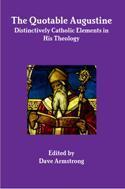 *** The Quotable Augustine: Distinctively Catholic Elements in His Theology
[2012, 245p]
*** The Quotable Augustine: Distinctively Catholic Elements in His Theology
[2012, 245p]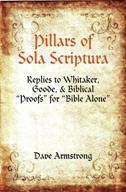 *** Pillars of Sola Scriptura: Replies to Whitaker, Goode, & Biblical "Proofs" for "Bible Alone" [2012, 310p]
*** Pillars of Sola Scriptura: Replies to Whitaker, Goode, & Biblical "Proofs" for "Bible Alone" [2012, 310p] 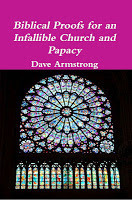 *** Biblical Proofs for an Infallible Church and Papacy
(2012, 150p)
*** Biblical Proofs for an Infallible Church and Papacy
(2012, 150p)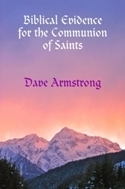 *** Biblical Evidence for the Communion of Saints
(2012, 152p)
*** Biblical Evidence for the Communion of Saints
(2012, 152p)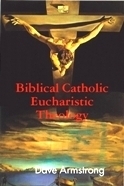 *** Biblical Catholic Eucharistic Theology
(2011, 222p)
*** Biblical Catholic Eucharistic Theology
(2011, 222p)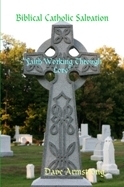 *** Biblical Catholic Salvation: “Faith Working Through Love”
(2010, 187p)
*** Biblical Catholic Salvation: “Faith Working Through Love”
(2010, 187p)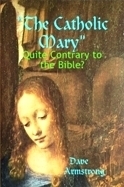 *** "The Catholic Mary": Quite Contrary to the Bible?
(2010, 193p)
*** "The Catholic Mary": Quite Contrary to the Bible?
(2010, 193p)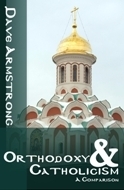 *** Orthodoxy and Catholicism: A Comparison
(2004, 232p)
*** Orthodoxy and Catholicism: A Comparison
(2004, 232p)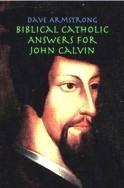 *** Biblical Catholic Answers for John Calvin
(2010, 388p)
*** Biblical Catholic Answers for John Calvin
(2010, 388p) 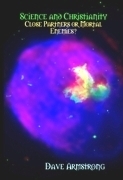 *** Science and Christianity: Close Partners or Mortal Enemies? (2010, 301p)
*** Science and Christianity: Close Partners or Mortal Enemies? (2010, 301p) 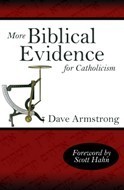 More Biblical Evidence for Catholicism (2002 181p)
More Biblical Evidence for Catholicism (2002 181p)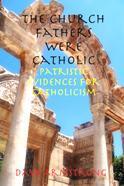 The Church Fathers Were Catholic: Patristic Evidences for Catholicism
(2007, 360p)
The Church Fathers Were Catholic: Patristic Evidences for Catholicism
(2007, 360p) 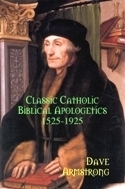 Classic Catholic Biblical Apologetics: 1525-1925 (2012, 246p)
Classic Catholic Biblical Apologetics: 1525-1925 (2012, 246p)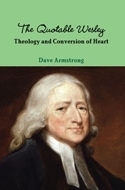 The Quotable Wesley: Theology and Conversion of Heart
[2012, 363p]
The Quotable Wesley: Theology and Conversion of Heart
[2012, 363p] 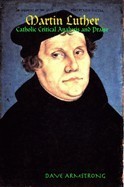 Martin Luther: Catholic Critical Analysis and Praise
(2008, 264p)
Martin Luther: Catholic Critical Analysis and Praise
(2008, 264p)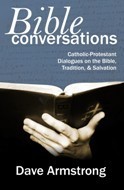 Bible Conversations: Catholic-Protestant Dialogues on the Bible, Tradition, and Salvation
(2002, 218p)
Bible Conversations: Catholic-Protestant Dialogues on the Bible, Tradition, and Salvation
(2002, 218p)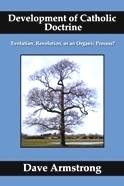 Development of Catholic Doctrine: Evolution, Revolution, or an Organic Process?
(2002, 198p)
Development of Catholic Doctrine: Evolution, Revolution, or an Organic Process?
(2002, 198p)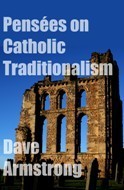 Pensées on Catholic Traditionalism
(2002, 170p)
Pensées on Catholic Traditionalism
(2002, 170p)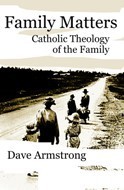 Family Matters: Catholic Theology of the Family
(2002, 159p)
Family Matters: Catholic Theology of the Family
(2002, 159p)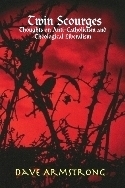 Twin Scourges: Thoughts on Anti-Catholicism & Theological Liberalism
(2003, 167p)
Twin Scourges: Thoughts on Anti-Catholicism & Theological Liberalism
(2003, 167p)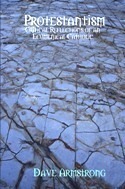 Protestantism: Critical Reflections of an Ecumenical Catholic
(2003, 188p)
Protestantism: Critical Reflections of an Ecumenical Catholic
(2003, 188p)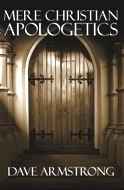 Mere Christian Apologetics (2002, 289p)
Mere Christian Apologetics (2002, 289p)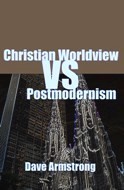 Christian Worldview vs. Postmodernism (2002, 218p)
Christian Worldview vs. Postmodernism (2002, 218p)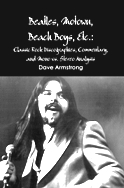 Beatles, Motown, Beach Boys, Etc.: Classic Rock Discographies, Commentary, and Mono vs. Stereo Analysis
(2012, 213p)
Beatles, Motown, Beach Boys, Etc.: Classic Rock Discographies, Commentary, and Mono vs. Stereo Analysis
(2012, 213p)Specific Donation Instructions (Including 100% Tax Deductibility)
1. PayPal (no tax deduction) You can donate through PayPal to my e-mail address:
apologistdave [at] gmail [dot] com
2. Instant online tax-deductible contributions I have made arrangements with my friend, fellow apologist and EWTN radio host John Martignoni, to receive 100% tax-deductible, secure credit card and bank account donations to my apostolate via his Bible Christian Society website (and be sure to check out his free offerings while you are there).
Very Important: a donation of this sort must be accompanied by an e-mail to John:
john [at] biblechristiansociety [dot] com
stating that "Dave Armstrong is the intended recipient". Otherwise, it'll be indistinguishable from any other donation to Bible Christian Society. He won't know it is for me, and I'll never receive it.
3. Tax-deductible donations by personal check Personal checks for this purpose are made out to "Bible Christian Society" (any checks from outside the US must be in "US funds") and mailed directly to me. You need to send me an e-mail (with the word "donation" in the title) or a Facebook PM so I can give you my home address to send it to (I don't want to list it online). Again, if the tax deduction is not desired, you can make the check out to me ("Dave Armstrong").
Till I Raise the Money . . .
I must be completely committed to this effort until I achieve the goal. I won't be putting up any new papers or links in the meantime, on my blog or Facebook pages (unless it has to do with the fundraising drive). Part of the reasoning of that is to help people realize that I do this work full-time, and that time is money. I can't do everything without the remuneration to pay my bills. I already offer nearly 2,500 papers free of charge, as it is. If my book royalties and additional donations are sufficient for me to pay my bills, then to that degree I can do various kinds of work.
It almost seems like many people think I am independently wealthy, and can write and write and write, as if money grows on a tree in my backyard or falls from the sky like manna (or that the amount of writing I've done requires no significant time to create). I'm not wealthy! This is it, folks. It's what I do and how I make my living, and I'll continue to do so, Lord willing, till I drop. No retirement is in store for me. As long as I can type on a keyboard, I'll be involved in apologetics and evangelization. I'm a lifer. Total commitment . . .
Thanks again for your time, and I ask that you seriously consider supporting this work, or if you are not able to do so at this time, to please, if you would, pray for this apostolate and for hearts to be moved to financially support it: particularly those who have been directly aided in some way by my writing.
I love all of you. May God bless you abundantly, and guide your footsteps. Thank you from the bottom of my heart to all who respond. I can never adequately express my deep appreciation for those who are kind enough to support my work. I have in my records, by name, 746 individuals who have done so since 2001: 158 of them more than once.
[I've turned comments off for this post, because I expect the anti-Catholics and other naysayers regarding my work to show up. If you have any questions at all about any of this, feel free to drop me a line to my e-mail address (listed not far above, under donation information), or a Facebook PM if you're on Facebook]
*****
Published on September 10, 2012 11:03
September 5, 2012
The Quotable Newman (edited by Dave Armstrong): Foreword by Joseph Pearce
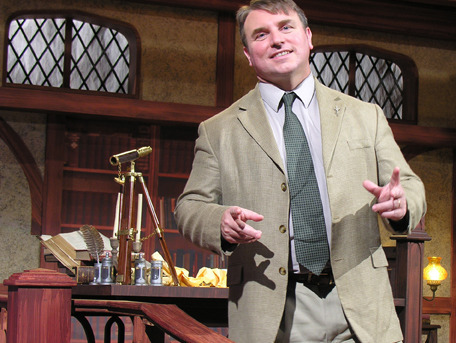
Joseph Pearce (b. 1961) is a noted Catholic biographer (arguably the most eminent one writing today). He has written books about Chesterton, Belloc, Tolkien, C. S. Lewis, Solzhenitsyn, Shakespeare, and Wilde, as well as the volumes, Literary Converts and Literary Giants, Literary Catholics .
My book page: The Quotable Newman: A Definitive Guide to His Central Thoughts and Ideas .
Link to purchase info. at Sophia Institute Press.
* * * * *
In 2010, I was honored to be among the official press commentators for Pope Benedict XVI’s visit to Britain. It was indeed a joy and a privilege to follow the Pope as he visited venues in London which resonated with Catholic significance. He visited Westminster Hall, in which St. Thomas More had stood trial, and visited Westminster Abbey to pray at the shrine of St. Edward the Confessor. He blessed the crowds in Hyde Park, only a stone’s throw from the site of Tyburn Tree, the Machiavellian altar on which numerous Catholic Martyrs were slain. It was as though the places selected for the Pope’s visit had been carefully chosen to remind Englishmen of their Catholic heritage and to warn of the dangers inherent in secularist intolerance towards the Church. The purpose of the Pope’s visit, however, was not primarily to celebrate England’s Catholic heritage but to beatify John Henry Newman. In so doing, the Pope was not so much celebrating history as making it. Newman was the first Englishman, other than the Martyrs, to be beatified since the Reformation; he was also the first Englishman born since the 17th century to be raised to the altar.
John Henry Newman was born in 1801, at the very dawn of the 19th century, and lived until 1890 as the sun began to set on this most catalytic and cataclysmic of epochs. During Newman’s long and eventful life, new ideas would cause seismic shifts in the way that modern man perceived himself. Karl Marx adapted the ideas of Hegel in the service of revolutionary politics, thereby unleashing an ideology which would claim the lives of tens of millions of people in the following century. Charles Darwin proposed the evolution of species from primitive beginnings, thereby initiating the notion of biological progressivism and the chronological snobbery which is its consequence. Friedrich Nietzsche declared brazenly that God was dead, thereby deifying Man. Sigmund Freud supplanted the conscious will with subconscious complexes, thereby supplanting rational moral choices with irrational psychological urges. Revolutions swept across Europe as nationalism and socialism threatened the old order, sowing the seeds of National Socialism and its international communist Big Brother. The British Empire swept across the world, laying the foundations of globalism. It was a time of change and uncertainty and yet, at the same time and as the life of Newman testifies, it was also a time of religious revival and resurgent traditionalism.
Newman’s own place within the Catholic Revival is paramount. He is indeed the very Father of the Revival itself.
At the time of Newman’s birth, the Catholic Church in England had been largely rooted out of the national life and consciousness. Between the 1530s and 1680s countless Catholics had been put to death for their faith. There are more than a hundred canonized and beatified English martyrs and many others whose final sacrifice for the Faith has not been officially recognized by the Church. In the wake of the so-called “Glorious” Revolution of 1688, which deposed the Catholic monarch, James II, two Jacobite uprisings sought the return of the true King’s heirs to the throne. In the second of these uprisings the followers of Bonnie Prince Charlie were finally defeated at the Battle of Culloden in 1746, crushing any realistic hope of the return of a Catholic monarchy. At this point, after more than 200 years of relentless persecution, all seemed lost for England’s shrinking Catholic population. A small number of recusant families, who had clung on to the Faith doggedly and dogmatically in defiance of the ongoing war of attrition against them, had resigned themselves to a place on the margins of English life, excluded from preferment in politics and society by the ingrained and institutionalized prejudice of their fellow countrymen. This was the world in which Newman was born and in which he was due to play a major role.
Newman’s conversion in 1845, sixteen years after Catholic Emancipation and five years before the re-establishment of the Catholic hierarchy in England, heralded the birth of a Revival which would see the resurrection of the Faith in the English-speaking world. Prior to Newman’s conversion, Catholicism had been perceived by the British as a foreign religion, espoused by swarthy and superstitious Mediterranean types. As the power of Britain waxed into the fullness of Empire and as the power of Italy, Spain and Portugal waned into relative impotence, it was easy for the British to feel superior and supercilious. Catholicism was a primitive and backward religion for primitive and backward people. Such snobbery was thrown into confusion by Newman’s reception into the Catholic Church. Known as possessing one of the finest intellects of his day, it was difficult to dismiss the submission of such an intellectual giant to the historical and dogmatic claims of Rome.
Newman had made an intensive study of the early Church and had concluded that the faith of the Church Fathers was the same holy, Catholic and Apostolic Faith as that preached and taught by the Catholic Church of his own day. Newman’s scholarship and his eloquence in expressing it shook the Anglican establishment, throwing into question the presumptions and prejudices on which the foundations of the Church of England were built.
A wave of converts from the higher echelons of society crossed the Tiber in Newman’s wake as conversion became almost fashionable. At the same time, a huge influx of Irish immigrants, fleeing the potato famine, greatly increased the number of working class Catholics. Almost overnight, Catholicism was becoming a significant force in British society, the presence of a growing number of erudite converts coinciding with the growing plebian presence of the Irish immigrants. The result would be a Catholic Revival which would last for more than a century.
The first period of this revival could be called the Newman period, stretching from the great man’s conversion in 1845 until his death in 1890. The second period, or what might be called the Decadent interlude, spanned the final decade of the century in which the writers and artists of the fin de siècle flirted with Rome and ultimately succumbed to the charms of the Church. Amongst the converts from this decade were Oscar Wilde, Aubrey Beardsley, Ernest Dowson and Lionel Johnson. The next major period of the revival could be called the Chesterbelloc period, in which the giant figures of Belloc and Chesterton loomed large, which spanned from 1900, the year in which Chesterton was first published, until 1936, the year of his death. The final period called be called the Inklings period in which the figures of Tolkien and Lewis dominated, spanning from 1937, the year The Hobbit was published, until 1973, the year of Tolkien’s death.
It is arguable that the enormity of the Catholic Revival, which placed Catholicism at the centre and even at the pinnacle of the artistic and cultural life of Britain, would not have happened had it not been for Newman’s conversion, the catalytic nature of which can hardly be overstated.
Having placed Newman’s importance within its historical context, it is also necessary to look albeit briefly at his influence as an historian, theologian, philosopher, educationist, apologist, novelist and poet.
Newman’s importance as an historian is rooted in his pioneering work on the Early Church, which convinced him, as it has convinced generations of those who have read him, that a study of the Fathers and of the early heresies provides convincing evidence of the truth claims of Catholicism. Newman claimed and his work has shown that the more one is steeped in history the more one becomes a Catholic.
As a theologian, Newman is rightly celebrated for his Essay on the Development of Christian Doctrine (1845), which has been hugely influential in the Church’s understanding of how its doctrine develops without ever changing in its essentials. The most succinct encapsulation of this understanding of the development of Church doctrine was given by Tolkien in a letter to his son in which he likened the Church to a tree. It was wrong to see the full-grown tree, i.e. the Church after two millennia of development, as being inferior to the seed from which it grew or the sapling that it had once been, i.e. the early Church. The tree (Church) is the same throughout all the ages, developing and growing organically without ever changing its essential “treeness” (i.e., the truth that the Church teaches and the truth that it is).
In philosophy, Newman is best known for An Essay in Aid of the Grammar of Assent (1870), which shows the inadequacy of reductionist reasoning, such as logic, as a means of comprehending the fullness of truth. Faith is arrived at by the correlation of converging probabilities to which the will must assent. As an educationist, Newman championed the liberal arts in The Idea of a University (1852), uniting the classics of pagan antiquity to the inheritance of Christendom. As an apologist, his seminal Apologia pro Vita Sua (1864) remains one of the greatest spiritual autobiographies ever written, perhaps the greatest with the obvious exception of Augustine’s Confessions. The role of the apologist is also manifested in his novels, Loss and Gain (1845) and Callista (1855), as well as in his sermons and his theological engagement with the errors of Anglicanism. Last but indubitably not least is Newman’s position as a prose stylist of the highest order and a poet of the first rank.
Before concluding, passing reference must be made to later generations of famous converts for whom Newman was a major influence. These include Gerard Manley Hopkins, arguably the greatest poet in an age of great poets, who was received into the Church by Newman himself in 1866. Others who were helped significantly on their paths to Rome by Newman include Oscar Wilde, Maurice Baring, R. H. Benson, Christopher Dawson, Ronald Knox, Evelyn Waugh, Graham Greene, Muriel Spark, and Alec Guinness, to name but an illustrious few. Mention should also be made of Hilaire Belloc and J. R. R. Tolkien, two of the giants of the Catholic Revival, who were both educated at the Oratory School in Birmingham which Newman had founded.
In so many multifarious ways, John Henry Newman has been a blessing to the Church. How appropriate, therefore, that the Church has now conferred a great blessing upon Newman by raising him to the altar. The beatified Newman is in the Presence of the Beatific Vision. He has achieved the only goal for which life is worth living. As such, praise should make way for prayers.
Blessed John Henry Newman, historian, theologian, philosopher and poet, pray for us.
* * * * *
Published on September 05, 2012 17:49
The Quotable Newman (edited by Dave Armstrong): Preface by Joseph Pearce

Joseph Pearce (b. 1961) is a noted Catholic biographer (arguably the most eminent one writing today). He has written books about Chesterton, Belloc, Tolkien, C. S. Lewis, Solzhenitsyn, Shakespeare, and Wilde, as well as the volumes, Literary Converts and Literary Giants, Literary Catholics .
My book page: The Quotable Newman: A Definitive Guide to His Central Thoughts and Ideas .
Link to purchase info. at Sophia Institute Press.
* * * * *
In 2010, I was honored to be among the official press commentators for Pope Benedict XVI’s visit to Britain. It was indeed a joy and a privilege to follow the Pope as he visited venues in London which resonated with Catholic significance. He visited Westminster Hall, in which St. Thomas More had stood trial, and visited Westminster Abbey to pray at the shrine of St. Edward the Confessor. He blessed the crowds in Hyde Park, only a stone’s throw from the site of Tyburn Tree, the Machiavellian altar on which numerous Catholic Martyrs were slain. It was as though the places selected for the Pope’s visit had been carefully chosen to remind Englishmen of their Catholic heritage and to warn of the dangers inherent in secularist intolerance towards the Church. The purpose of the Pope’s visit, however, was not primarily to celebrate England’s Catholic heritage but to beatify John Henry Newman. In so doing, the Pope was not so much celebrating history as making it. Newman was the first Englishman, other than the Martyrs, to be beatified since the Reformation; he was also the first Englishman born since the 17th century to be raised to the altar.
John Henry Newman was born in 1801, at the very dawn of the 19th century, and lived until 1890 as the sun began to set on this most catalytic and cataclysmic of epochs. During Newman’s long and eventful life, new ideas would cause seismic shifts in the way that modern man perceived himself. Karl Marx adapted the ideas of Hegel in the service of revolutionary politics, thereby unleashing an ideology which would claim the lives of tens of millions of people in the following century. Charles Darwin proposed the evolution of species from primitive beginnings, thereby initiating the notion of biological progressivism and the chronological snobbery which is its consequence. Friedrich Nietzsche declared brazenly that God was dead, thereby deifying Man. Sigmund Freud supplanted the conscious will with subconscious complexes, thereby supplanting rational moral choices with irrational psychological urges. Revolutions swept across Europe as nationalism and socialism threatened the old order, sowing the seeds of National Socialism and its international communist Big Brother. The British Empire swept across the world, laying the foundations of globalism. It was a time of change and uncertainty and yet, at the same time and as the life of Newman testifies, it was also a time of religious revival and resurgent traditionalism.
Newman’s own place within the Catholic Revival is paramount. He is indeed the very Father of the Revival itself.
At the time of Newman’s birth, the Catholic Church in England had been largely rooted out of the national life and consciousness. Between the 1530s and 1680s countless Catholics had been put to death for their faith. There are more than a hundred canonized and beatified English martyrs and many others whose final sacrifice for the Faith has not been officially recognized by the Church. In the wake of the so-called “Glorious” Revolution of 1688, which deposed the Catholic monarch, James II, two Jacobite uprisings sought the return of the true King’s heirs to the throne. In the second of these uprisings the followers of Bonnie Prince Charlie were finally defeated at the Battle of Culloden in 1746, crushing any realistic hope of the return of a Catholic monarchy. At this point, after more than 200 years of relentless persecution, all seemed lost for England’s shrinking Catholic population. A small number of recusant families, who had clung on to the Faith doggedly and dogmatically in defiance of the ongoing war of attrition against them, had resigned themselves to a place on the margins of English life, excluded from preferment in politics and society by the ingrained and institutionalized prejudice of their fellow countrymen. This was the world in which Newman was born and in which he was due to play a major role.
Newman’s conversion in 1845, sixteen years after Catholic Emancipation and five years before the re-establishment of the Catholic hierarchy in England, heralded the birth of a Revival which would see the resurrection of the Faith in the English-speaking world. Prior to Newman’s conversion, Catholicism had been perceived by the British as a foreign religion, espoused by swarthy and superstitious Mediterranean types. As the power of Britain waxed into the fullness of Empire and as the power of Italy, Spain and Portugal waned into relative impotence, it was easy for the British to feel superior and supercilious. Catholicism was a primitive and backward religion for primitive and backward people. Such snobbery was thrown into confusion by Newman’s reception into the Catholic Church. Known as possessing one of the finest intellects of his day, it was difficult to dismiss the submission of such an intellectual giant to the historical and dogmatic claims of Rome.
Newman had made an intensive study of the early Church and had concluded that the faith of the Church Fathers was the same holy, Catholic and Apostolic Faith as that preached and taught by the Catholic Church of his own day. Newman’s scholarship and his eloquence in expressing it shook the Anglican establishment, throwing into question the presumptions and prejudices on which the foundations of the Church of England were built.
A wave of converts from the higher echelons of society crossed the Tiber in Newman’s wake as conversion became almost fashionable. At the same time, a huge influx of Irish immigrants, fleeing the potato famine, greatly increased the number of working class Catholics. Almost overnight, Catholicism was becoming a significant force in British society, the presence of a growing number of erudite converts coinciding with the growing plebian presence of the Irish immigrants. The result would be a Catholic Revival which would last for more than a century.
The first period of this revival could be called the Newman period, stretching from the great man’s conversion in 1845 until his death in 1890. The second period, or what might be called the Decadent interlude, spanned the final decade of the century in which the writers and artists of the fin de siècle flirted with Rome and ultimately succumbed to the charms of the Church. Amongst the converts from this decade were Oscar Wilde, Aubrey Beardsley, Ernest Dowson and Lionel Johnson. The next major period of the revival could be called the Chesterbelloc period, in which the giant figures of Belloc and Chesterton loomed large, which spanned from 1900, the year in which Chesterton was first published, until 1936, the year of his death. The final period called be called the Inklings period in which the figures of Tolkien and Lewis dominated, spanning from 1937, the year The Hobbit was published, until 1973, the year of Tolkien’s death.
It is arguable that the enormity of the Catholic Revival, which placed Catholicism at the centre and even at the pinnacle of the artistic and cultural life of Britain, would not have happened had it not been for Newman’s conversion, the catalytic nature of which can hardly be overstated.
Having placed Newman’s importance within its historical context, it is also necessary to look albeit briefly at his influence as an historian, theologian, philosopher, educationist, apologist, novelist and poet.
Newman’s importance as an historian is rooted in his pioneering work on the Early Church, which convinced him, as it has convinced generations of those who have read him, that a study of the Fathers and of the early heresies provides convincing evidence of the truth claims of Catholicism. Newman claimed and his work has shown that the more one is steeped in history the more one becomes a Catholic.
As a theologian, Newman is rightly celebrated for his Essay on the Development of Christian Doctrine (1845), which has been hugely influential in the Church’s understanding of how its doctrine develops without ever changing in its essentials. The most succinct encapsulation of this understanding of the development of Church doctrine was given by Tolkien in a letter to his son in which he likened the Church to a tree. It was wrong to see the full-grown tree, i.e. the Church after two millennia of development, as being inferior to the seed from which it grew or the sapling that it had once been, i.e. the early Church. The tree (Church) is the same throughout all the ages, developing and growing organically without ever changing its essential “treeness” (i.e., the truth that the Church teaches and the truth that it is).
In philosophy, Newman is best known for An Essay in Aid of the Grammar of Assent (1870), which shows the inadequacy of reductionist reasoning, such as logic, as a means of comprehending the fullness of truth. Faith is arrived at by the correlation of converging probabilities to which the will must assent. As an educationist, Newman championed the liberal arts in The Idea of a University (1852), uniting the classics of pagan antiquity to the inheritance of Christendom. As an apologist, his seminal Apologia pro Vita Sua (1864) remains one of the greatest spiritual autobiographies ever written, perhaps the greatest with the obvious exception of Augustine’s Confessions. The role of the apologist is also manifested in his novels, Loss and Gain (1845) and Callista (1855), as well as in his sermons and his theological engagement with the errors of Anglicanism. Last but indubitably not least is Newman’s position as a prose stylist of the highest order and a poet of the first rank.
Before concluding, passing reference must be made to later generations of famous converts for whom Newman was a major influence. These include Gerard Manley Hopkins, arguably the greatest poet in an age of great poets, who was received into the Church by Newman himself in 1866. Others who were helped significantly on their paths to Rome by Newman include Oscar Wilde, Maurice Baring, R. H. Benson, Christopher Dawson, Ronald Knox, Evelyn Waugh, Graham Greene, Muriel Spark, and Alec Guinness, to name but an illustrious few. Mention should also be made of Hilaire Belloc and J. R. R. Tolkien, two of the giants of the Catholic Revival, who were both educated at the Oratory School in Birmingham which Newman had founded.
In so many multifarious ways, John Henry Newman has been a blessing to the Church. How appropriate, therefore, that the Church has now conferred a great blessing upon Newman by raising him to the altar. The beatified Newman is in the Presence of the Beatific Vision. He has achieved the only goal for which life is worth living. As such, praise should make way for prayers.
Blessed John Henry Newman, historian, theologian, philosopher and poet, pray for us.
* * * * *
Published on September 05, 2012 17:49
September 3, 2012
Package E-Book Deal to be Modified Shortly. If You Want the Current 15 E-Books, Purchase Very Soon!

Within the next few days, I'll be changing my current deal to a new package set of ten e-books for $19.95, including my two latest books ( The Quotable Augustine , Pillars of Sola Scriptura ). That means seven books in the current deal will no longer be available in the new one. They'll still be available individually as PDFs (only $1.99: same price), but the individual ePub price is $4.99, whereas in the package deal it is just $1.99 each, so you save $3 compared to individual pricing.
Therefore, if you want this spectacular deal, act quickly before it changes. It's 87% savings compared to paperback prices. That rate of savings will remain the same in the new deal, except that there will be fewer books (10). I'm trying to see if the $19.95 price is a magic number: to create more sales. It seems to be on late-night TV ads for everything under the sun. :-)
See also my Main Books page, for all titles: excluding my two newest ones above, that haven't yet been added, as of this writing.
***
Published on September 03, 2012 08:34
September 2, 2012
Books by Dave Armstrong: Pillars of Sola Scriptura: Replies to Whitaker, Goode, & Biblical “Proofs” for “Bible Alone”
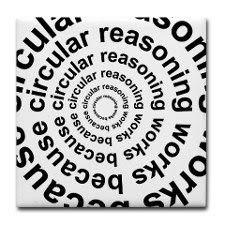 [photo of cover here soon]
[photo of cover here soon] [310 pages; completed on 7-7-12; published by Lulu on 9-3-12]
--- for instant purchase information, go to the bottom of the page ---
INTRODUCTION
Sola Scriptura (literally, “Scripture Alone”) is the Protestant rule of faith; that is, the only supreme, final, and infallible authority for all matters related to the Christian faith. It follows logically that both an infallible Church and an infallible apostolic tradition are thus rejected and ruled out.
The concept of sola Scriptura is not, however, inexorably opposed in every way to the importance and validity of Church history, tradition, ecumenical councils, or the authority of Church fathers and prominent theologians. The difference lies in the relative position of authority held by Scripture and Church institutions and proclamations. For the Protestant, the Bible alone is infallible and the Church, popes, and councils are not.
Sola Scriptura is considered one of the two “pillars” -- along with sola fide, or “faith alone” -- of the Protestant “Reformation” (or more accurately, Revolt) of the sixteenth century. It’s fundamental and essential in Protestant thinking with regard to the all-important issue of Christian authority and determination of true theology.
Whereas Protestantism takes an "either/or" approach with regard to these issues, Catholicism has a "both/and" perspective. Thus, Scripture and Tradition are inextricably linked: twin fonts of the one spring of revelation (a word-picture that the Catholic Church has often used). Tradition is the handing on of true beliefs and practices by oral as well as written means.
The Bible, though uniquely inspired, is part of a Tradition larger than itself, of which it is an encapsulation or crystallization. Scripture, Tradition, and the Church, in the Catholic view, have been described as a "three-legged stool."
If sola Scriptura is a doctrine about the authority of the Bible, which makes the Bible alone infallible, does it follow that the same Bible should be fully expected to expressly, plainly teach it in its pages, or stronger yet, that it necessarily would have to do so? Or is it plausibly true without the Bible ever asserting it (not even indirectly)?
Most Protestant defenders of Scripture Alone contend that it is taught in the Bible. I maintain that their alleged prooftexts are invariably logically circular and fatally weak (and I hope to prove that in this book). Other Protestants argue that it is a true and a solid principle, without having to be directly taught in the Bible; that it isn’t logically necessary for that to be the case in order to adhere to sola Scriptura.
I have made many and varied elaborate arguments through the years against both of these positions, and many will be presented in this book, as I respond to the arguments of some of the most able and renowned champions of sola Scriptura over the last 500 years.
I will offer up rebuttals in this book to significant biblical arguments that actually deal with the heart and stated definition or essence of sola Scriptura: the notion that only Scripture is the sole infallible guide for the Christian: to the exclusion of an infallible tradition or infallible Church. I won’t be responding to arguments for inspiration or material sufficiency or other relative side issues, because Catholics already agree with those.
My purpose is to demonstrate that the defenses of sola Scriptura (particularly from the Bible itself) are inadequate, and indeed, utterly fail in their task. I argue, moreover, that if indisputable biblical evidences for the position can’t be found, it collapses in a heap of self-contradiction and logically self-defeating propositions (even before one analyzes other aspects of it).
In other words, the foregoing is a fancy way of saying that sola Scriptura (fully and closely examined) simply doesn’t make sense, and often reduces to literal nonsense. I mean no disrespect whatever to my Protestant brethren in asserting this, but it is my conclusion based on a long and serious study of the topic. A person is not the same as his opinions and ideas, and every person ought to subject his or her own opinions to logical scrutiny, and be willing to forsake them if they are found seriously wanting.
William Whitaker (1548-1595) was a Calvinist Anglican apologist and Master of St. John's College, Cambridge. His masterwork was Disputation on Holy Scripture: Against the Papists, Especially Bellarmine and Stapleton, published in 1588. I have utilized an online copy published in 1849 by the University Press of Cambridge.
James R. White, a zealous Reformed Baptist apologist and prominent defender of sola Scriptura, has sold the book on his website, and wrote about it in one such ad in 2007:
Since the Reformation, only a few godly servants of the truth have invested the time and effort necessary to produce for God's people a full-orbed defense of Scriptural sufficiency against those who would subject Scripture to external authorities. William Whitaker was one of those servants, and his work should be carefully studied by all concerned shepherds of Christ's flock.
William Goode (1801-1868) was an English evangelical Anglican, a priest, and Dean of Ripon after 1860. He wrote The Divine Rule of Faith and Practice, originally two volumes in 1842, and then revised and enlarged to three volumes in a second edition in 1853: published in London by John Henry Jackson (vol. 1) and Hatchard & Co. (vol. 2).
It is considered by many Protestants to be the best defense of sola Scriptura ever penned. For example, Pastor David T. King, an active Presbyterian apologist, wrote in his own similar book, A Biblical Defense of the Reformation Principle of Sola Scriptura (Battle Ground, Washington: Christian Resources, Inc., 2001):
. . . of all the treatments dealing with sola Scriptura, the work of William Goode, The Divine Rule of Faith and Practice, has never been surpassed. (p. 17)
I have utilized online versions of the first two volumes [one / two] (the third not presenting any purely biblical argumentation).
Classic Protestant apologists like Whitaker and Goode believed in their doctrines strongly enough to defend them at great length and in fine details, rather than merely accept truths in blind faith, sans any significant argument, like so many Protestants today, or to assume that no one can be certain enough of theological truths to vigorously defend them.
Like these "old guys" or not, we can heartily respect them in this respect. They stood for something, and zealously fought for it. There is nothing wrong with placing very high confidence in Scripture: it is only the unbiblical notion of sola Scriptura that causes problems.
I shall also reply in this volume to additional Protestant arguments (mostly biblical ones) in favor of sola Scriptura, from various sources. May the reader judge the validity of the various positions pro and con. This is the beauty of dialogue, in which each person’s views are fully presented, rather than opposing views being described by opponents (with all of the usual bias – intended or not -- inherent in that).
TABLE OF CONTENTS
William Whitaker (1548-1595)
1. General View of Patristics; Tertullian, St. John Chrysostom, and St. Augustine; St. Athanasius on the Old Testament Canon (p. 13)
2. Relation of Church and Scripture, and the Practical Necessity of an Authoritatively Declared Canon (p. 29)
3. Is Scripture Completely Self-Authenticating and Self-Evidently Inspired in All its Books, so that Each Individual Can Discover the Canon in Isolation from Church Pronouncements? (p. 45)
4. The Perspicuity (Clearness) of Scripture (p. 59)
5. Church Fathers on the Rule of Faith / Prooftext for Perspicuity (Eisegesis of Deuteronomy 30:11-14) Refuted from Scripture (p. 75)
6. Biblical Refutation of Whitaker's Eisegetical "Prooftexts" for Perspicuity from the Scriptural Metaphor of "Light" (p. 87)
7. "Plain" Gospel and Easily Understood Biblical Christology?; Typology and Analogies to Moses, Joshua, and the Judges (p. 95)
8. Moses' Seat, Pharisaical Authority, the Jerusalem Council (Acts 15), and Whitaker's Irrational, Radically Individualist Subjectivism (p. 115)
9. Church Councils, St. Irenaeus' Rule of Faith, and St. John Chrysostom on St. Peter and His Successors (p. 121)
10. More Logically Circular Subjectivism and "Co-Opting" the Holy Spirit as the Supposed "Final Judge" for All Interpretation Disputes (p. 131)
11. The Nature of Tradition(s), the Immaculate Conception; Gregory the Great and Nicaea II on Images (p. 135)
12. Is All of Jesus' Teaching and Apostolic Tradition in Scripture?; Authoritative "Necessary" Extra-Biblical Tradition (p. 145)
13. The Protestant Perspective on the Church Fathers (p. 157)
14. Oral Tradition / Desperate Anti-Traditional Exegetical Arguments / St. John Chrysostom on Tradition / Whitaker's Near-Bibliolatry (p. 161)
15. Further Rebuttals of Whitaker's Absurd Attempted Biblical Arguments Against Apostolic Tradition or Any Tradition Whatsoever (p. 173)
William Goode (1801-1868)
16. Definitions and Premises; Ezekiel 3 (p. 187)
17. Goode Concedes: The Bible Contains No Precise Statement of Sola Scriptura; the Rule of Faith of the Old Testament Jews; Jesus and Tradition (p. 201)
18. Oral Tradition in the New Testament; Church Fathers and Tradition (p. 215)
19. Goode Denies the Infallibility of the Church; Is the Bible Its Own Judge, Minus the Church? (p. 225)
20. Perspicuity (Clearness) and the Self-Defeating Nature of Goode's Logic and Standards for All Doctrines (p. 231)
Various Other Scriptural Arguments for Sola Scriptura
21. Reply to David T. King’s Defense of Sola Scriptura from Romans 16:15-16 and 2 Timothy 3:16-17 (p. 237) [read online]
22. Reply to the Arguments of a Book Review on Amazon (Regarding Galatians 1:6-9, 2 Timothy 3:14-17, and John 20:30-31) (p. 249) [read online]
23. 2 Timothy 3:14-17 and “Catholic” Implications of the Phrases “Man of God,” “Profitable for Teaching,” Etc. (p. 259) [read online]
24. How Different (In Nature and Ultimate Effect) Are “Solo” Scriptura and Sola Scriptura? (Reply to Keith A. Mathison) (p. 267) [read similar papers online: Part One / Part Two / Part Three]
25. The Bereans “Searching the Scriptures” (Acts 17:10-11): Proof of Sola Scriptura? (p. 297) [read online]
26. No Theological Certainty?: The Biblical Understanding of “Truth” vs. “Essential” and “Secondary” Doctrines (p. 301)
Uploaded on 2 September 2012.
*****
Published on September 02, 2012 12:19
Dave Armstrong's Blog
- Dave Armstrong's profile
- 20 followers
Dave Armstrong isn't a Goodreads Author
(yet),
but they
do have a blog,
so here are some recent posts imported from
their feed.



